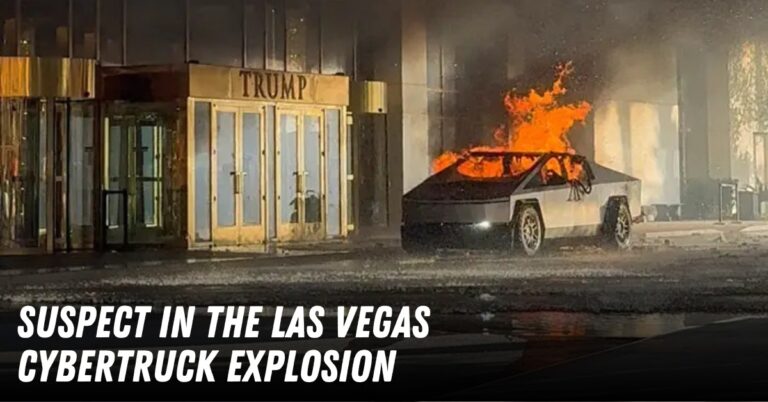The FBI is actively investigating why a highly decorated Army soldier detonated a Tesla Cybertruck outside the Trump International Hotel in Las Vegas on New Year’s Day.
Suspect Identified as Green Beret Matthew Lavelle Berger
The driver has been identified as Matthew Lavelle Berger, a Green Beret on leave from his base in Germany. Known for his extensive military career, Berger had steadily advanced in rank, serving as a team sergeant and second in command to the captain of a Special Forces detachment.If you want to read about the Donald Trump Dismisses Sentencing in Hush Money Case as a “Political Attack” so follow this article.
Incident Details
Investigators revealed that the explosion occurred in the valet area of the Trump Hotel early in the morning. The materials used in the explosion included fireworks and other easily obtainable items from retail stores. Despite Berger’s background in explosives, law enforcement noted a lack of sophistication in the materials used.
Surveillance footage showed the Cybertruck arriving at the Trump Hotel once before leaving to visit other businesses on the Las Vegas Strip. It later returned to the hotel, parked, and exploded 17 seconds after stopping.
Military and Personal Background
Berger had been active on social media during President Trump’s term, expressing admiration for how Trump supported the military. He became a father in April of the previous year. Investigators discovered Berger’s military ID, weapons, fireworks, his passport, an iPhone, and a smartwatch inside the burnt-out Cybertruck.
Investigative Challenges
The Tesla company is assisting law enforcement by retrieving potential data and video from the vehicle. Berger rented the Cybertruck in Denver on December 28, traveling through New Mexico and Arizona before arriving in Las Vegas.
Authorities are investigating connections between this incident and another recent attack in New Orleans, though no definitive links have been found. Berger’s life appears to have been marked by personal struggles, including signs of depression and stress related to his military service.
Possible Motivations
Law enforcement and experts are exploring multiple angles, including:
- Personal Struggles: Berger reportedly experienced stress from long deployments, PTSD, and the toll of his military career.
- Symbolic Location: Some speculate the location of the explosion could hold significance, though no direct ideological motives have been identified.
Addressing Mental Health in the Military
Experts have highlighted the intense pressures faced by Special Forces soldiers. These individuals endure high-stress combat situations and face challenges reintegrating into civilian life. Many, including those like Berger, may need additional mental health support.
The Broader Implications
The incident raises important questions about:
- Identifying potential threats before they escalate.
- Providing adequate mental health support for military personnel.
- Strengthening tools for law enforcement to address lone-wolf attacks.
As the investigation continues, authorities emphasize the need for patience and caution to prevent the spread of misinformation

